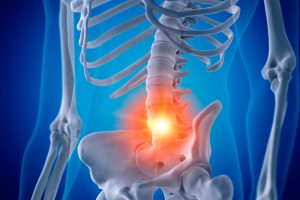 Ankylosing spondylitis (AS) is a complex and often misunderstood autoimmune condition that primarily affects the spine and its surrounding structures. This chronic inflammatory disorder can lead to debilitating pain, stiffness, and even permanent spinal deformities if left unchecked. Understanding the intricacies of this condition is crucial for those seeking to manage its symptoms and maintain a fulfilling quality of life.
Ankylosing spondylitis (AS) is a complex and often misunderstood autoimmune condition that primarily affects the spine and its surrounding structures. This chronic inflammatory disorder can lead to debilitating pain, stiffness, and even permanent spinal deformities if left unchecked. Understanding the intricacies of this condition is crucial for those seeking to manage its symptoms and maintain a fulfilling quality of life.
Defining Ankylosing Spondylitis
Ankylosing spondylitis is a rare type of arthritis that primarily targets the spine, causing inflammation and fusion of the vertebrae. The term “ankylosing” refers to the stiffening or fusing of the bones, while “spondylitis” indicates the inflammation of the spinal vertebrae. This chronic condition can also affect other joints, such as the hips, shoulders, and knees, as well as the eyes, heart, and lungs.
The Enigmatic Causes of Ankylosing Spondylitis
The exact cause of ankylosing spondylitis remains a mystery, but researchers believe that genetics play a significant role. The presence of a specific gene, known as HLA-B27, is strongly associated with the development of this condition. However, the mere possession of this gene does not guarantee the onset of AS, as less than 5% of individuals with HLA-B27 actually develop the disease.
Researchers continue to explore other potential triggers, such as environmental factors and immune system dysfunction, that may contribute to the pathogenesis of ankylosing spondylitis. The interplay between these various elements likely plays a crucial role in determining an individual’s susceptibility to this debilitating disorder.
Demographic Patterns and Risk Factors
Ankylosing spondylitis is more prevalent among young adults, typically affecting individuals between the ages of 17 and 35. The condition is also more common in men than women, with a ratio of roughly 3:1. Additionally, individuals with a close family member who has been diagnosed with AS are at an increased risk of developing the condition themselves.
Certain ethnic and racial groups may also be predisposed to ankylosing spondylitis. For instance, the disease is more prevalent among white Americans compared to their African American counterparts. Socioeconomic status has also been identified as a risk factor, with individuals from lower socioeconomic backgrounds often experiencing more severe symptoms and a greater impact on their daily lives.
Recognizing the Symptoms of Ankylosing Spondylitis
The hallmark symptom of ankylosing spondylitis is persistent back pain and stiffness, typically most pronounced in the lower back and hips. This discomfort is often worse in the early morning hours and may improve with physical activity. As the condition progresses, the pain and stiffness can spread upwards, affecting the mid-back, neck, and even the chest.
Other common symptoms of ankylosing spondylitis include:
- Difficulty taking deep breaths due to the involvement of the rib cage
- Fatigue and weight loss
- Fever and anemia
- Joint pain and swelling in the shoulders, knees, and ankles
- Eye inflammation (uveitis)
- Digestive issues, such as Crohn’s disease or ulcerative colitis
It’s important to note that the severity and progression of symptoms can vary greatly among individuals, making early diagnosis and proper management crucial.
Diagnosing Ankylosing Spondylitis
Diagnosing ankylosing spondylitis can be a complex and challenging process, as the symptoms can mimic those of other musculoskeletal conditions. Healthcare providers typically begin with a thorough medical history and physical examination, paying close attention to the patient’s symptoms and their progression over time.
Diagnostic tests that may be utilized include:
- Imaging Studies: X-rays, MRI scans, and CT scans can help identify structural changes in the spine and other affected joints, such as the sacroiliac joints.
- Blood Tests: The presence of the HLA-B27 gene, as well as elevated levels of inflammation markers like the erythrocyte sedimentation rate (ESR), can provide valuable clues for the diagnosis.
- Physical Examination: Healthcare providers will assess the range of motion, posture, and overall mobility of the patient to identify any signs of spinal or joint involvement.
In some cases, a referral to a rheumatologist, a specialist in the diagnosis and treatment of arthritis and related conditions, may be necessary to confirm the diagnosis and develop an appropriate treatment plan.
Progression and Complications of Ankylosing Spondylitis
The progression of ankylosing spondylitis can vary greatly among individuals. In the early stages, the condition may manifest as intermittent episodes of back pain and stiffness, which can gradually worsen over time. As the disease progresses, the inflammation can lead to the fusion of the vertebrae, resulting in a rigid, hunched-over posture known as kyphosis.
Complications of ankylosing spondylitis can include:
- Osteoporosis and an increased risk of spinal fractures
- Organ damage, such as inflammation of the heart, lungs, and eyes
- Increased susceptibility to certain types of cancer, including bone, prostate, and colon cancer
These complications underscore the importance of early diagnosis and comprehensive management of the condition to prevent long-term disability and improve overall health outcomes.
Comprehensive Treatment Approaches
The primary goals of ankylosing spondylitis treatment are to alleviate pain, reduce inflammation, maintain spinal mobility, and prevent deformities. A multifaceted approach, combining medication, physical therapy, and lifestyle modifications, is often the most effective strategy.
Medications
-
- Nonsteroidal Anti-Inflammatory Drugs (NSAIDs): These medications, such as ibuprofen and naproxen, are typically the first-line treatment to reduce inflammation and ease pain.
- Biologic Medications: Newer biologic drugs, including tumor necrosis factor (TNF) blockers and interleukin-17 (IL-17) inhibitors, can significantly improve symptoms and slow disease progression.
- Disease-Modifying Anti-Rheumatic Drugs (DMARDs): Medications like sulfasalazine and methotrexate can help control inflammation and prevent joint damage.
- Corticosteroids: Short-term use of corticosteroids may be beneficial during acute flare-ups to rapidly reduce inflammation.
Physical Therapy and Exercise
Regular exercise, including stretching, strengthening, and low-impact activities like swimming, is crucial for maintaining spinal mobility, improving posture, and managing pain. A physical therapist can develop a personalized exercise program to address the specific needs of each patient.
Lifestyle Modifications
Adopting a healthy lifestyle, including maintaining a balanced diet, managing stress, and avoiding smoking, can significantly improve the overall well-being of individuals with ankylosing spondylitis. Incorporating heat and cold therapies, as well as using assistive devices like canes or braces, can also provide relief and support.
Living with Ankylosing Spondylitis
Living with ankylosing spondylitis can be a challenging journey, but with the right approach, individuals can learn to manage their symptoms and maintain a good quality of life. Regular communication with healthcare providers, adherence to the prescribed treatment plan, and a proactive approach to self-care are essential.
Strategies for coping with ankylosing spondylitis include:
- Prioritizing sleep and rest to manage fatigue and pain
- Maintaining a healthy weight to reduce stress on the joints
- Seeking emotional support through counseling or patient support groups
- Advocating for workplace accommodations and accessibility
- Incorporating mindfulness and stress-reduction techniques, such as meditation or yoga
By embracing a holistic approach to managing ankylosing spondylitis, individuals can take an active role in their health and work towards achieving their personal goals and aspirations.
Emerging Research and Future Outlook
The scientific community continues to make strides in unraveling the complexities of ankylosing spondylitis. Ongoing research is focused on better understanding the genetic and immunological underpinnings of the condition, as well as exploring novel therapeutic approaches.
Some of the promising areas of research include:
- Investigating the role of the HLA-B27 gene and its impact on immune system dysregulation
- Exploring the link between gut microbiome and the development of ankylosing spondylitis
- Developing more targeted and effective biologic medications to control inflammation
- Evaluating the potential of regenerative therapies to address spinal deformities and joint damage
As our knowledge of ankylosing spondylitis continues to evolve, healthcare providers and researchers are working collaboratively to improve the quality of life for those living with this complex condition. With early diagnosis, comprehensive management, and ongoing advancements in research, individuals with ankylosing spondylitis can look forward to a future filled with increased hope and better outcomes.
Contact Us (859-331-3100) For More Information or to Request an Appointment
—
 About Tristate Arthritis and Rheumatology
About Tristate Arthritis and Rheumatology
Tristate Arthritis and Rheumatology is the first and largest Rheumatology practice in the Northern Kentucky area. Founded by Dr. Arthur Kunath in 1986, our rheumatology practice now consists of six doctors who are board certified in both Internal Medicine and Rheumatology and a Physician Assistant. Patients see one doctor (except in emergencies), thereby assuring continuity of care and an individualized docteor-patient atmosphere giving the physician the ability to establish personalized and detailed relationships. Our doctors have received numerous awards, including being listed as “Top Doctors” in Cincinnati Magazine, receiving the Patient’s Choice Award, the Most Compassionate Doctor Award, and the American College of Rheumatology’s “My Doc Rocks” award.


